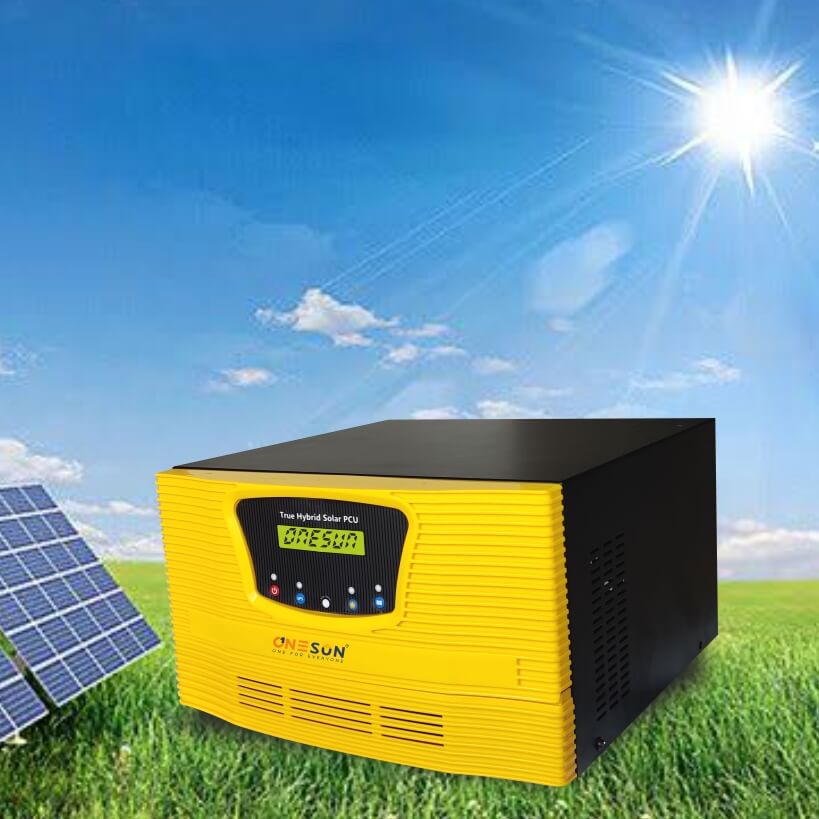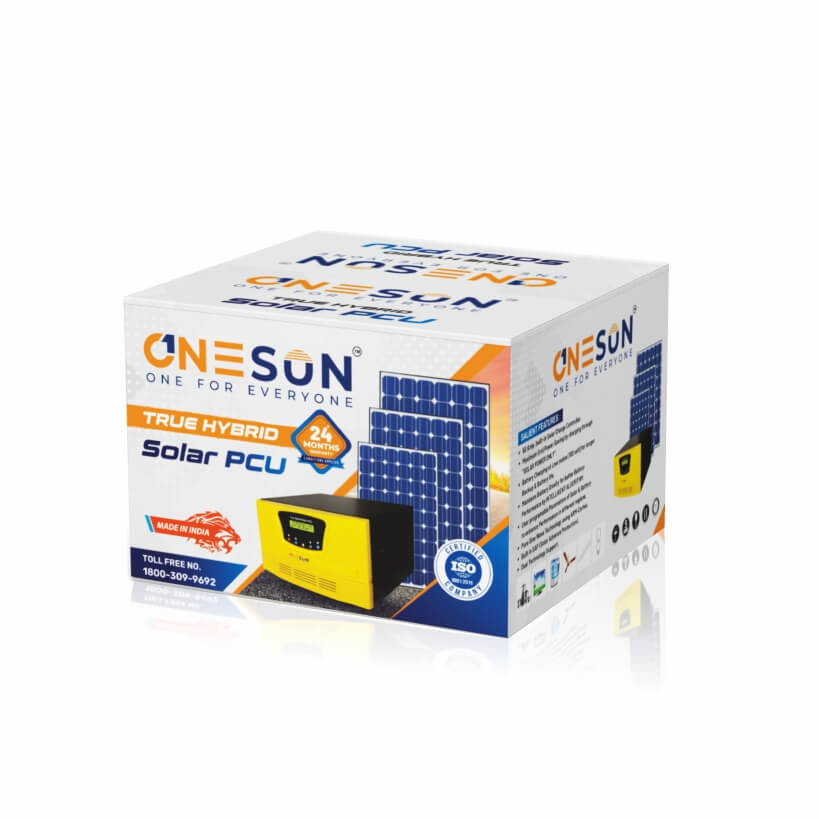That depends on how much electricity your home or business uses, where you
live, the rate your utility company charges for electricity, and several
other factors.
Most solar providers aim to offset 70–90% of your monthly electricity bill,
so that’s a good place to start your calculations.
Solar PCU / OFF Grid Invertor
- Operate on both Solar Power as well as Grid Power.
- It is integrated with an in-built fully regulated 50Amp/70Amp PWM Solar Charge Controller for maximum Solar Power utilization.
- Smart Solar Selection with three different saving modes.
- It is designed to give you maximum benefit from solar energy and minimize your electricity bill drastically.
- Highly efficient battery charging from solar energy as a result you will get non-stop power, save money, save electricity and protect the environment.
- Advanced ARM Cortex technology for absolute stability and 100% pure sine wave output.
- User-friendly LCD for the display of the mode of operation and all parameters.
KEY FEATURES

- Dual Mode of working: UPS and Normal
- UPS Mode: Fast switching, Input operating range from 180V to 260V.
- Normal Mode: Wide Input operating range from 100V to 290V.
- Dual Solar Mode: Hybrid and PCU Mode
- Hybrid Mode: Intelligent battery charging through Solar Power and Grid Power.
- PCU Mode: Charge sharing and ability to run a load with solar and battery hence saving grid power and utilizing maximum solar power to minimize the electricity bill.
# If solar is available and battery declared as full charged, then Mains will automatic cut till battery discharge upto pre-deined level in PCU mode.










